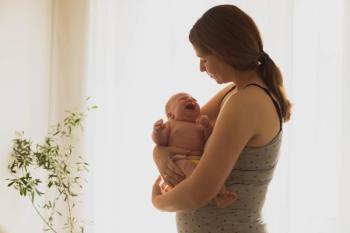
FDA plans to remove hydroxyprogesterone caproate approval
The controversial 17α-hydroxyprogesterone caproate (17-OHPC; Makena) showed to be ineffective at preventing preterm birth, according to briefing documents.
The United States Food and Drug Administration (FDA) is calling for withdrawal of the approval for 17α-hydroxyprogesterone caproate (17-OHPC; Makena) after briefing documents were released ahead of a 3-day advisory committee meeting.
The injectable drug was approved for pregnant women with a history of at least 1 spontaneous preterm birth. Initially, the FDA approved 17-OHPC in 2011 to reduce the risk of preterm birth before 37 weeks of pregnancy among women who had a history of spontaneous preterm birth. The drug was under accelerated approval, which allows the agency to expedite approval process based on a surrogate endpoint thought to predict clinical benefit.
The initial approval was based on clinical trial results, during which women received aa 250-mcg injection of 17-OHCP and had significantly lower risk of delivering before 37 weeks compared with the placebo group. However, since the risk reduction in preterm births did not signify a direct clinical benefit to babies born prematurely, the FDA required a post marketing confirmatory trial.
This confirmatory trial, the PROLONG study, was the basis of the FDA’s position to pull 17-OHCP from the market. The study included 1700 patients and showed that 17-OHCP did not have aa statistically significant effect on preterm births before 35 weeks’ gestation (relative risk [RR] 0.95, 95% CI 0.71-1.26) or a neonatal composite index that included outcomes such as death, respiratory distress syndrome, bronchopulmonary dysplasia, and sepsis, among others (RR 1.05, 95% CI 0.68-1.61).
The FDA’s briefing materials note that the benefit-risk calculation for 17-OHPC was not favorable, as the medication is ineffective and carries risks for adverse events like blood clots or depression.
"Failing to withdraw Makena would maintain FDA approval of a drug that, based on all available evidence, has not been shown to be more effective than, but is riskier than, no treatment," FDA staff wrote.
Reference
Briefing Materials Supporting CDER’s Proposal to Withdraw Approval of Makena. Center for Drug Evaluation and Research (CDER). Food and Drug Administration. September 16, 2022. https://www.fda.gov/media/162246/download
Newsletter
Get the latest clinical updates, case studies, and expert commentary in obstetric and gynecologic care. Sign up now to stay informed.









